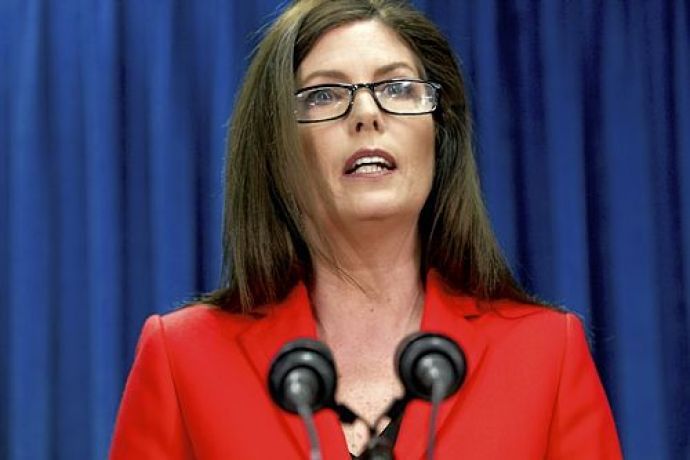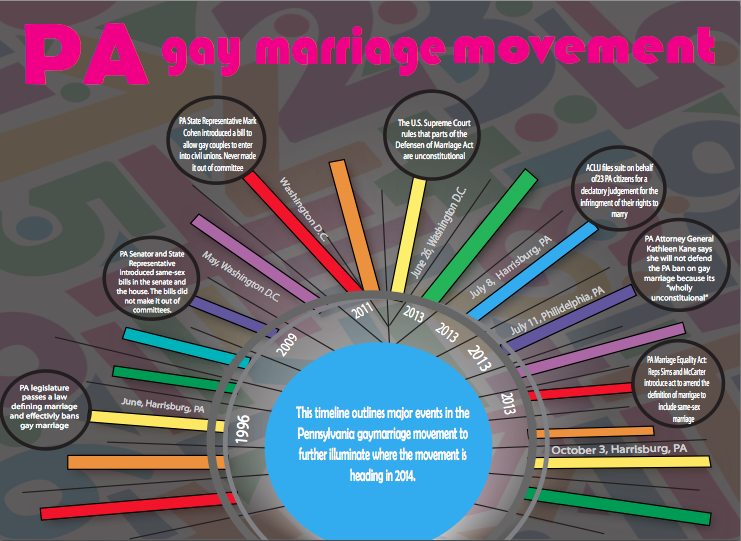by: Lauren Gailey, Associate Editor
On January 24, 2013, Nevada Attorney General Catherine Cortez Masto announced in a statement that her office’s arguments against same-sex marriage in a case currently before the United States Court of Appeals for the Ninth Circuit “are likely no longer tenable,” despite the fact that the state filed its brief in the case of Sevcik v. Sandoval just four days earlier.
Masto’s change of heart came after the Ninth Circuit handed down what SCOTUSblog reporter Lyle Denniston termed a “sweeping new ruling” in a separate case decided on January 21. In SmithKline Beecham Corp. v. Abbott Laboratories, it became the second federal court of appeals to read 2013’s United States v. Windsor, in which the U.S. Supreme Court struck down the Defense of Marriage Act, as requiring a “heightened scrutiny” analysis in cases involving state discrimination based on sexual orientation. Nevada’s arguments in its brief in Sevcik relied largely on a “rational basis” review, which is much easier for the government to meet. Masto said that her office will now “evaluate the State’s argument in light of SmithKline” and weigh its options in conjunction with the governor’s office.
Masto is not the first state official to reassess her office’s position on the same-sex marriage issue in light of the Supreme Court’s decision in Windsor, a number of state courts and legislatures permitting same-sex marriage, and polling reflecting increasing public support. The day before Masto’s statement, Virginia Attorney General Mark Herring, a Democrat who assumed his seat in early January 2014 after winning an extremely close election, announced his refusal to defend Virginia’s same-sex marriage ban and called on a federal court to invalidate it.
Closer to home, two Pennsylvania officials’ positions on the same-sex marriage issue have attracted national attention. Shortly after Windsor, Attorney General Kathleen Kane, also a Democrat, announced on July 11, 2013 that her office would not defend Pennsylvania’s Marriage Law, which limits the definition of “marriage” to one man and one woman. In September, the Commonwealth Court ordered D. Bruce Hanes, Clerk of the Orphans’ Court of Montgomery County, to stop issuing marriage licenses to same-sex couples.
Nevada’s Attorney General does seem to be alone, however, in reevaluating her position as a direct response to very recent, controlling precedent. The legal bases underlying other state officials’ decisions to abandon their defenses of same-sex marriage bans are less clear. Kane explained that she considered Pennsylvania’s definition of marriage as between a man and a woman “wholly unconstitutional.” Similarly, Herring had determined that Virginia’s ban “violates Virginians’ fundamental constitutional rights.” He expressed reluctance to advocate for what he termed the “wrong side” of justice, as his predecessors had in famous cases such as Loving v. Virginia, in which the Supreme Court struck down the state’s ban on interracial marriage, and Brown v. Board of Education, where the state unsuccessfully supported segregation in public schools. Hanes also cited a desire to “come down on the right side of history”—as well as Kane’s announcement and his own legal analysis—for his decision to issue marriage licenses to same-sex couples despite Pennsylvania law to the contrary.
At press time, Masto had not yet announced whether her office will move forward with its defense of Nevada’s same-sex marriage ban. On January 29, Florida Attorney general Pam Bondi, a Republican, announced that she is willing to intervene in defense of Florida’s ban in a suit filed by six same-sex couples.
Whether Masto decides to follow Bondi’s lead or that of Kane and Herring, the fact remains that a trend seems to be emerging: whether an Attorney General defends a law in court is perceived to be a matter of personal choice. This perception raises a number of important and challenging issues that cut to the core of the American government’s three-branch structure, in which, generally speaking, the legislative branch makes the laws, the executive branch enforces the laws, and the judicial branch interprets the laws. When executive branch officials decline to enforce laws according to their own interpretations of the laws’ constitutionality, the delicate balance among the branches is altered. As more states’ same-sex marriage bans face legal challenges, their supporters and opponents alike must confront the question of whether this behavior on the part of their elected officials is desirable and proper.
Part II of “Going Rogue?,” which offers answers to these difficult questions, can be found HERE.
Lauren Gailey follows the Supreme Court beat for Juris Blog. A third-year student at Duquesne Law, she currently works as a Research Assistant to Dean Ken Gormley. Her prior legal work experience includes internships with the United States District Court for the Western District of Pennsylvania, the U.S. Attorney’s Office, and the Education Law Center. She will join Jones Day’s Pittsburgh office next fall.

